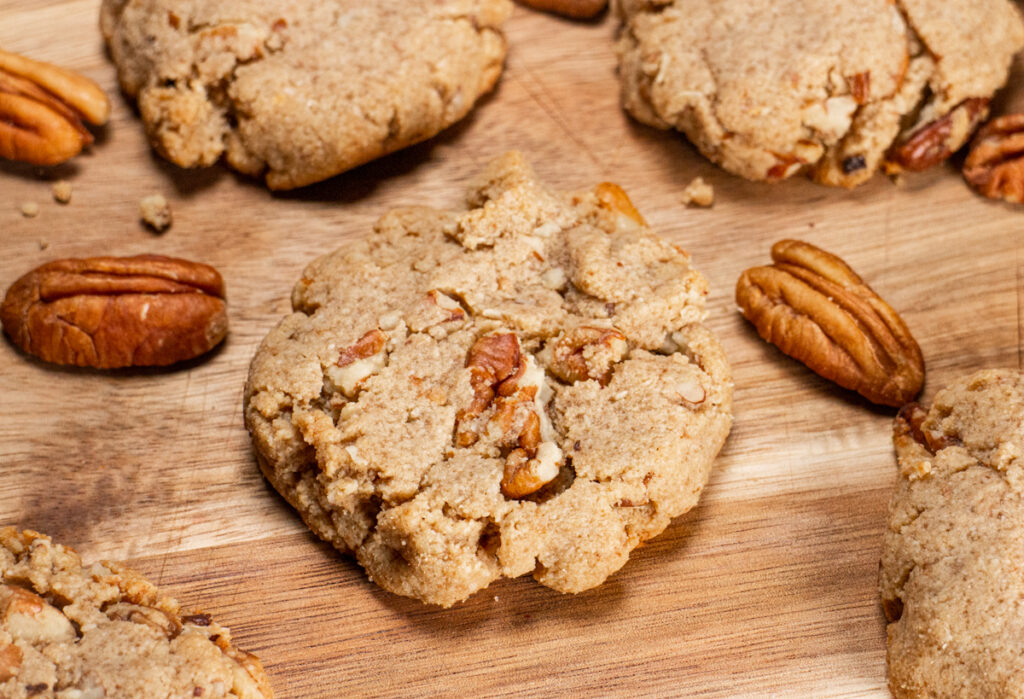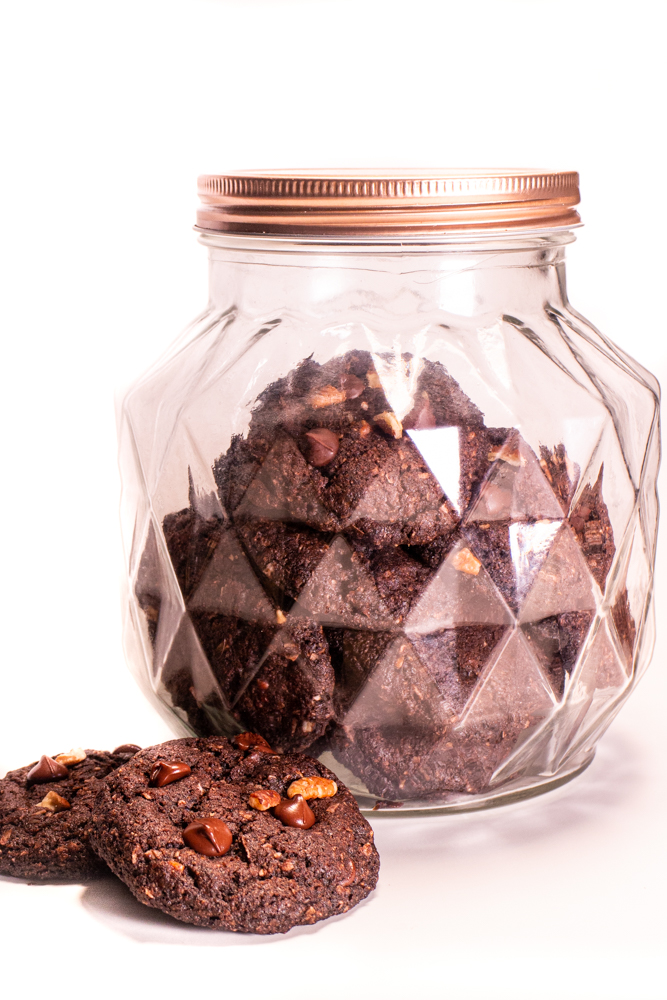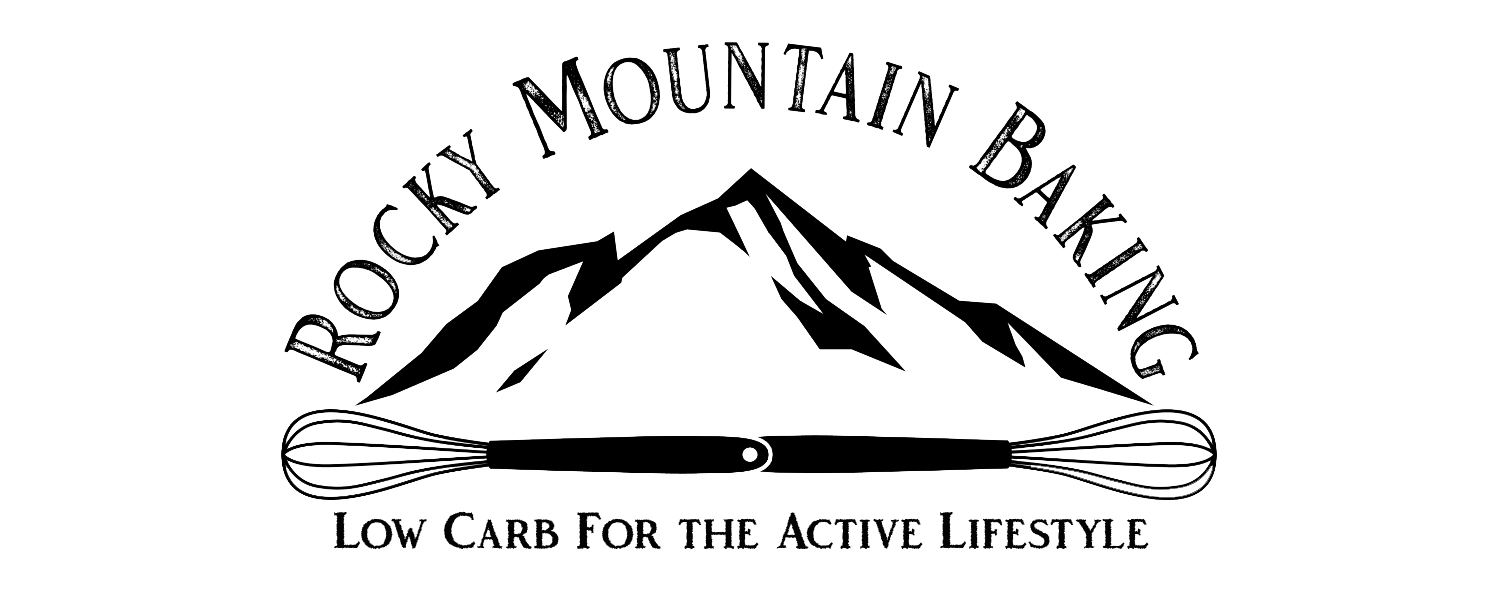
Storing Low Carb Baked Goods
Workout. Go to work. Make dinner. Work some more. Sleep. Repeat.
I’m sure many of you have a schedule similar to this only you probably have a few more things added in. Add eating low carb to the list, and now buying on the go snacks is a little harder, and eating out not quite as convenient.
Though keto friendly options are way more prevalent than they used to be, they are also higher priced than carb filled snacks. For me that makes it difficult to buy ready to eat snacks and ready made dinners on a regular basis.
And that my friends is why I meal prep. By cooking only a few days out of the week, I’m able to have low carb, on the go meals, as well as delicious snacks that taste better than any store bought snacks. Also by making them myself I am ensuring they are truly low carb, have no wheat content whatsoever, and they don’t have any nasty preservatives!
Storing low carb baked goods can pose a bit of a challenge. Though most low carb snacks freeze and store well they may not last quite as long as traditional baked goods due to the lack of sugar.. Not only does sugar cause your baked goods to retain moisture, it is also a preservative. Add extra eggs, cream cheese, etc. to the mix and you just shortened the shelf life of your baked goods a little bit more.
Don’t panic though. You can still store and meal prep low carb items. Though removing sugar does leave your snacks with a bit of a disadvantage I’ve found many items will store fine in an airtight container on the counter for a few days, and up to a week in the refrigerator. However, if you live in a hot, humid environment the shelf life of your products at room temperature will be shortened significantly, and I highly recommend refrigerating most of your products after a day or right off the bat.
How do I know what products need refrigerated?
Because mold and bacteria need moisture to grow I pay attention to texture as well as main ingredients when deciding how to store my low carb treats. If they are dry to the touch, such as a cookie or muffin, they should store well on the counter in an airtight container for 3-5 days and will last up to a week in the fridge. However, if the base ingredient is a dairy product such as cream cheese, I recommend refrigerating them immediately.
If you have a purposely under-baked cookie or a very moist product these should not be stored on the counter and should be refrigerated. As a general rule these baked goods store fine up to a week in the fridge.
Dry and crunchy baked goods such as crackers, granola, or biscotti can be stored on the counter for up to two weeks. Though refrigerating your baked goods is something I definitely recommend in most cases, crackers and biscotti are an exception. The humidity in the fridge adds moisture to these crunchy baked goods causing them to lose their crispy quality.
Freezing low carb products.
If you’re wanting to preserve your baked goods for longer than a week, freezing them is probably a great option for you. Many low carb baked goods hold up very well to the freezer as long as they are stored in an airtight container or bag. If using a bag make sure you remove as much air as possible to help prevent freezer burn.
Though almost every type of baked good holds up well in the freezer I do suggest you avoid freezing any items that are very creamy or have a cream base, as this sometimes changes the texture. Fathead doughs can become dense and chewy, and custards or frostings may become grainy. (Cheesecake is one exception to this rule as I have frozen several and they hold up exceptionally well.)
Because freezing changes the texture in frosting, it’s best to freeze your cake before it’s frosted if possible. However, if you have a frosted cake you don’t know what to do with, throw it in the freezer anyways! Thought the texture may not be quite right it will still be delicious!
Low Carb Cookies are probably one of my favorite things to freeze, whether it be an already baked cookie or cookie dough. However, if you don’t follow a few simple rules you may find yourself fighting with a frozen clump of cookie dough or you may have a stack of cookies that refuse to be separated. To prevent these issues, wrap each cookie individually to avoid a clump of frozen cookies or freeze on a baking sheet then stack them. If freezing cookie dough I find it’s easiest to scoop out each individual cookie on a baking sheet, freeze it, then transfer it into a bag. If you do this it’s so much easier to bake your cookies afterwards, rather than fighting with a frozen clump of cookie dough that take an eternity to thaw!

Because temperature and humidity play such a huge role in how long your low carb baked goods can be stored, these are just rough guidelines and actual shelf life will vary. We ask you use your best judgment before eating any stored product.
